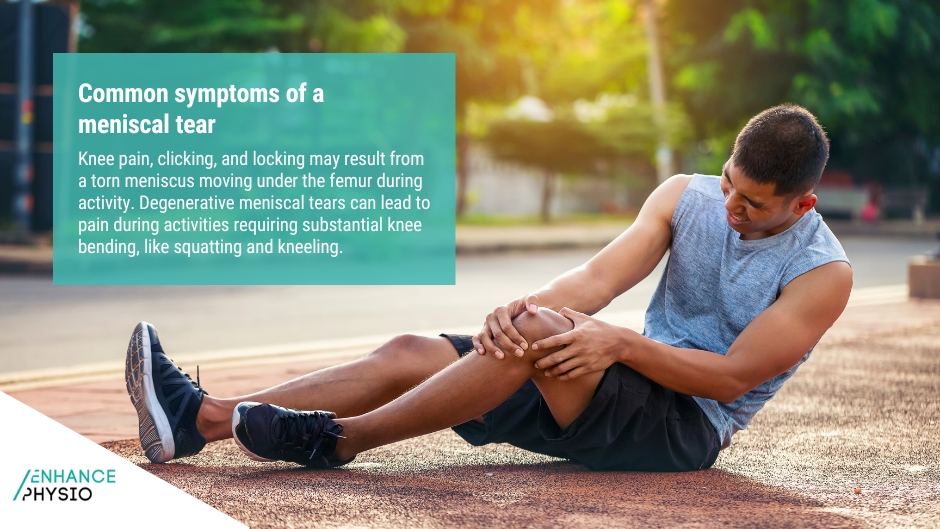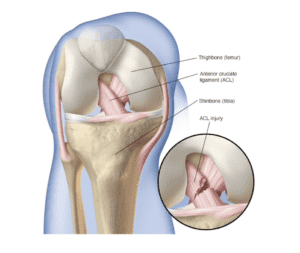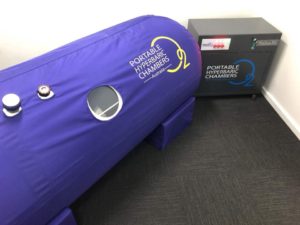Have you ever experienced pain and discomfort in your knee? It could be a meniscus injury. Physiotherapy can play a critical role in treating debilitating meniscus injuries.
The meniscus is a rubbery, C-shaped disc that cushions your knee joint. It can be torn or damaged due to sudden twisting or turning movements and wear and tear over time. Meniscus injuries can cause pain, swelling, and limited mobility, making it difficult to perform everyday activities.
When treating meniscus injuries, physiotherapy is a non-invasive and effective option. It focuses on improving mobility, reducing pain, and strengthening the knee muscles to promote healing.
What is a meniscus?
Our meniscus, or menisci, are horseshoe shaped pieces of fibrocartilage that sit between the end of the femur (thigh) and the top of the tibia (shin) in our knees. In each knee, we have a medial (inner side of knee) and a lateral (outside of knee) portion, each with anterior (front) and posterior (back) sections.
Because of their position between the bones in the knee, the menisci act as shock absorbers within the knee joint, taking and dispersing load through the bones, as well as providing a source of nourishment for the knee joint itself.
What is a meniscus tear?
A meniscus tear is an injury that develops when the knee’s protecting cartilage tears.
A torn meniscus may not necessarily produce pain but can cause edema and knee instability. The knee may lock, and you will struggle to move it.
Treatment for a meniscus tear can be determined by a physiotherapist or orthopaedic specialist based on the nature of the injury and the patient’s symptoms.
Younger persons and those who have had a severe injury, for example, are more likely than older people with persistent meniscus damage to require surgery.
Common causes of a meniscal injury
Traumatic tear
This often occurs acutely when excessive force is applied to a “normal” meniscus during activity or, in some cases, when mild stress is applied to a weakened meniscus. Most often, traumatic meniscal injuries are seen in sporting populations and can often be in conjunction with other ligament injuries. The meniscus can become injured when the knee is rapidly twisted when slightly bent with the foot grounded or with repetitive and sustained squatting positions. An acute tear can occur to anyone at any age, where significant force is placed through the knee.
Degenerative tear
These tears are more prevalent in our 40s and 50s and occur in the absence of acute trauma. This is frequently caused by the increasing degradation of the meniscus throughout our lives. Men appear more prone to degenerative meniscal tears; nevertheless, our risk may vary based on the level of physical activity or joint damage we have obtained.
A recent study suggests that degenerative meniscal tears in the knee may be an early indicator of osteoarthritis.
Common symptoms of a meniscal tear
Many patients will suffer knee pain deep inside or outside the knee, clicking and, in some cases, locking when moving or giving way unexpectedly. These symptoms are caused by a torn meniscus migrating under the femur while we walk or run.
Degenerative meniscal tears can cause difficulties with the patella (kneecap) or other cartilage in the knee. This frequently causes pain when squatting and kneeling, as well as other activities that demand a lot of knee bending.

Physiotherapy treatment for meniscus injuries
An accurate diagnosis must be made from the outset to optimise rehabilitation and return to normal function. The physiotherapists at Enhance Physiotherapy are experienced in diagnosing and managing a wide range of knee injuries, including meniscal injuries, across all populations.
Treatment for meniscal tears often includes strengthening and improving control around the knee and hip, dispersing load and supporting the injured knee.
Physiotherapy treatment options may include the following:
- Reducing pain, inflammation and swelling
- Manual joint mobilisation techniques
- Soft tissue massage and taping
- Strengthen muscles around the knee
- Restoring the range of motion
- Stretching muscles around the knee to restore length
- Progressive return to sport and activity
Our physiotherapists can guide you through a tailored exercise program to reduce pain and get you back to the activities you enjoy. We are also able to identify those who may require orthopaedic review.

Final thoughts on physiotherapy for meniscus injuries
If you’re suffering from a meniscus injury, don’t let it hold you back. Physiotherapy can help you regain strength and flexibility and return to your favourite activities. Remember, it’s not just about healing the injury but also preventing future ones.
So, take care of your knees, listen to your body, and trust in the power of physiotherapy to get you back on your feet. Here’s to a speedy recovery and a stronger, healthier you!





